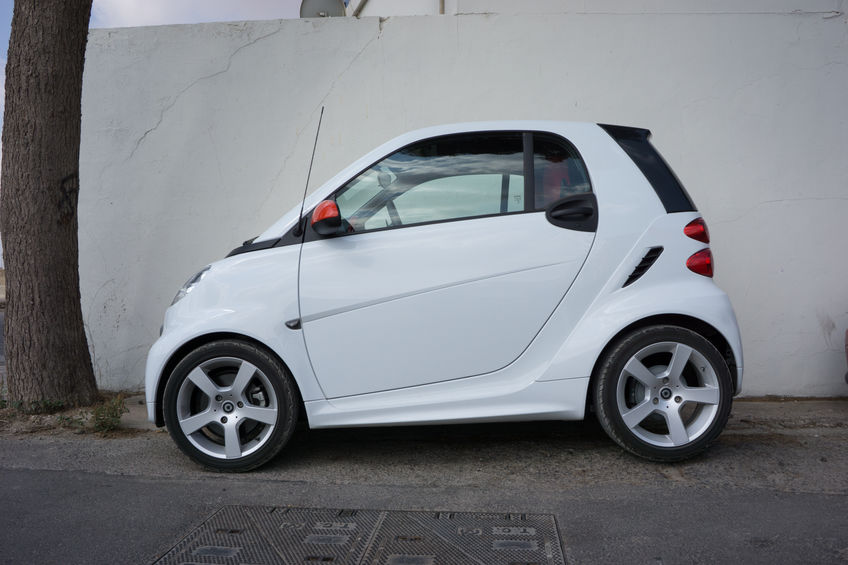In the midst of the fight to save lives from the COVID-19 pandemic, the Trump administration earlier today announced a regulatory change on another issue that also will save lives.
The National Highway Traffic Safety Administration (NHTSA) and the Environmental Protection Agency (EPA) said they will increase—at a slower pace than existing regulations—the required average miles per gallon that automobiles and light trucks must attain. Specifically, the new regulations require automakers to increase the current year “corporate average fuel economy” (CAFÉ) standard of 36.8 miles per gallon by 1.5 percent annually to a standard of 40.4 miles among their respective fleet of vehicles by 2026.
That means better built, safer cars overall, and more lives protected when accidents occur, compared to the prior standards. According to data from the NHTSA, the new regulations over the next decade will save 3,300 lives and result in nearly 400,000 fewer injuries from auto accidents.
The environmental cottage industry is nonetheless apoplectic. Gina McCarthy, president of the National Resources Defense Council (NRDC), claimed the new regulations “will harm the air we breathe, stall progress in fighting the climate crisis and increase the cost of driving.”
Mind you, the administration’s new regulations are increasing the CAFÉ standard to more than 40 miles per gallon in the next six years from the current mandate of 36.8 miles. That means greater fuel efficiency, lower per capita usage of oil, and lower driving costs. The previous mileage mandate of 46.6 miles per gallon by 2025 was imposed by the Obama administration in 2012; hence, the enviros strenuously object.
We’re talking a difference of six measly miles per gallon – and the world is coming to an end? Contrary to the assertion by the NRDC, this is not “gutting the clean car standards.”
Former President Obama also was not happy with this change to CAFE by his successor administration. He tweeted the new regulatory standard was akin to “climate denial” and compared the supposed consequences of this action to “those who denied warnings of a pandemic.”
Not unlike so many politicians, Barack Obama has long made such straw-man arguments. Whoever he claims was denying “warnings of a pandemic” he did not say, but those would have to include officials in his own administration who were no more prepared for the worst pandemic in a century from COVID-19 than any other administration.
As for “climate denial,” does anyone seriously believe that higher CAFÉ standards in the U.S. in five years, but six miles per gallon below what was previously promulgated, will accelerate the warming of the planet? Should the former president and Mrs. Obama now put a “for-sale” sign on their recently purchased, multi-million dollar Martha’s Vineyard oceanfront mansion? If the climate warms faster from “gutting” the CAFÉ standard, will sea levels rise and flood his yard, and perhaps reach into the parlor? But, I digress.
Corporate Average Fuel Economy standards were first imposed in 1975 to force auto manufacturers to make more fuel-efficient cars so Americans would consume less gasoline. World oil reserves at the time were thought to be more limited, and gas was rising sharply in price. CAFÉ was not originally about global warming theory, especially since the world then was thought by many to be cooling.
Those who today invoke climate change to further increase CAFÉ standards believe we must curtail fossil fuel use, as if such a vast phenomenon like climate would stop changing by driving more “Smart Cars,” which are little more than go-carts with an engine; a 21st century Yugo.
Higher CAFÉ standards always came with a price – in human lives. A multitude of studies over the last 40 years confirms this; however, other simultaneous developments have offset to a degree this impact, including more airbag and seatbelt use.
The debate over corporate average fuel economy standards, like so many public policies, has always been about trade-offs, including saving energy, reducing pollution and mitigating accidents and death. The revised regulations attempt to achieve that difficult balance.
Regardless of the competing studies on CAFÉ, no one disputes that mandates for higher gas mileage vehicles necessitated more cars be smaller in size and lighter in weight. Indeed, a Toyota Corolla gets better gas mileage than a Chevy Suburban. If I’m in a car accident, I’d rather be in the Chevy, and so would you, regardless of your position on the climate’s trajectory.
